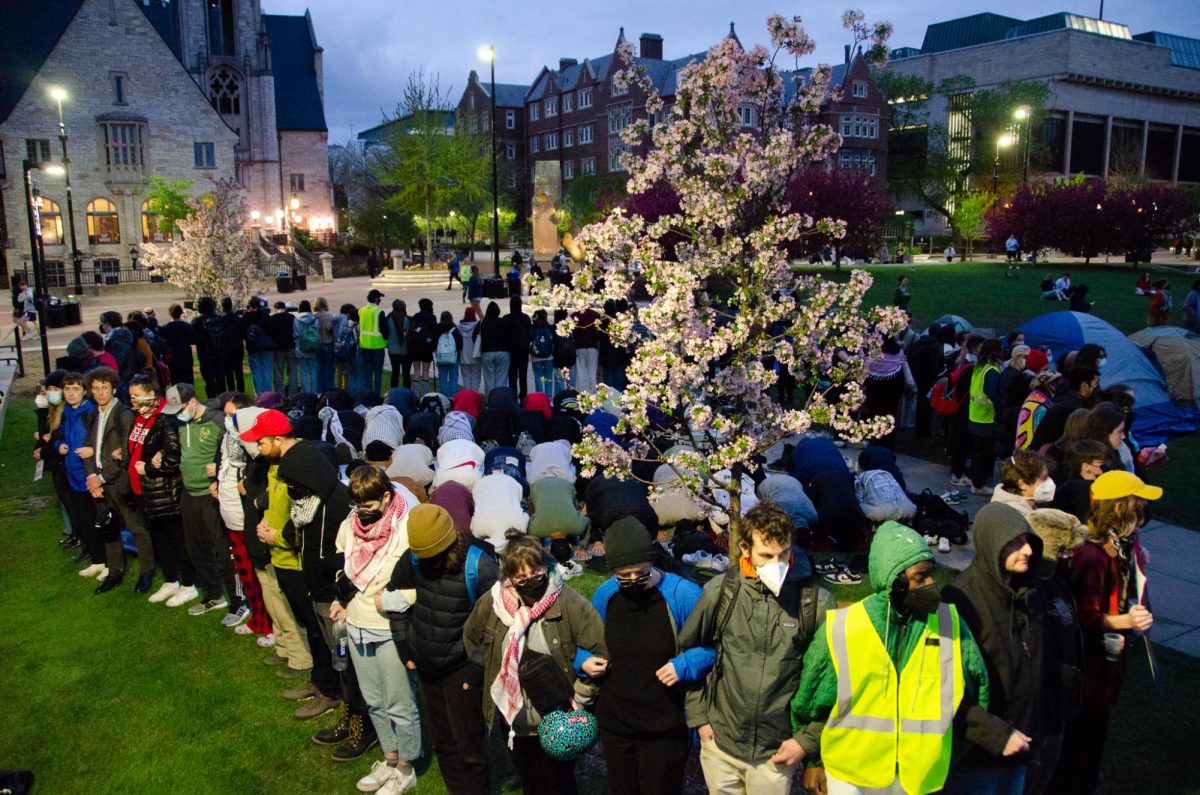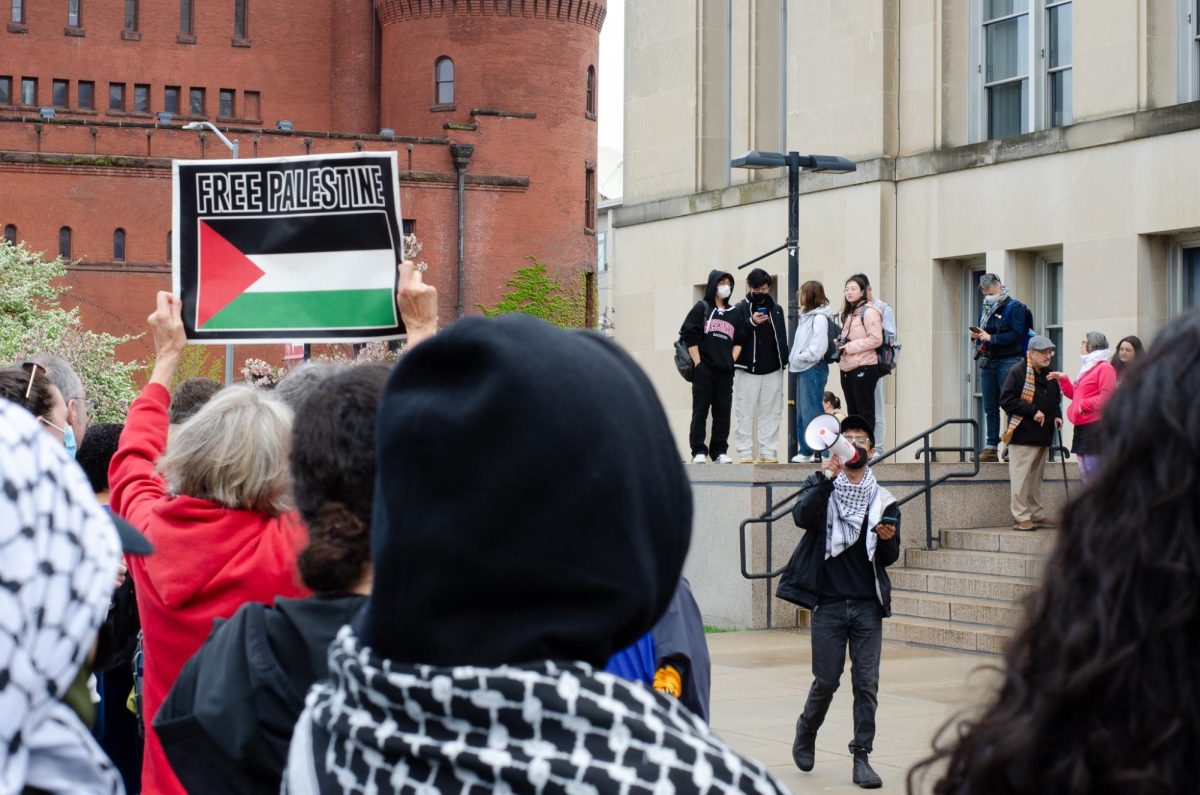Wisconsin’s first and only Rastafarian church, which also doubles as the state’s first “cannabis sanctuary,” recently opened its doors on Mifflin Street.
While the use of marijuana is illegal in the state of Wisconsin, the two Rastas who opened the church, Jesse Schworck and Dylan Bangert, claim their use of marijuana is constitutional, as reported by WISC TV.
In the church, known as the Lion of Judah House Rastafari, cannabis is used as a religious sacrament.
Schworck told WISC TV that they do not sell or gift the products to the public. The church is non-profit, and one must be a member and make donations to participate in the use of the “kaneh-bosm,” or cannabis, Schworck said. According to the church’s website, it uses cannabis flowers, edibles and CannaCoffee, among other products.
Madison-area faith leaders, social justice activists discuss place of religion in law
To become a member of the church, one must fill out a membership card that includes an oath regarding the signer’s sincerity. They have given out over 5,000 new member cards so far, according to WISC TV.
“We all use cannabis to meditate and also for the religious purpose for uplifting our mind and our body and our spirit,” Schwork told WISC TV.
Schworck and Bangert believe they are protected and allowed to use marijuana through the First Amendment, which prohibits the government from interfering with an individual’s exercise of religion. But Jason Freedman, captain of police for Madison Police Department’s Central District, said the issue is more complex.
“Just claiming that they are a religious institution or a religious organization does not mean that they are,” Freedman said. “Even if they claim such and are such does not give them [legal permission] to engage in — this case — the utilization of marijuana without some requirements. There are several standards they have to meet, and we do not believe they’ve met those standards. We are going to work towards making sure that the laws are followed as they should be, but their claiming that they are legal does not equate to them being legal.”
Wisconsin smoking rates above national average, while vaping rates on the rise
A similar case in the 1980s, Olsen v. Drug Enforcement Administration, ruled unfavorably for the petitioner who was seeking a religious-use exemption from federal laws prohibiting marijuana. Olsen argued an exemption is required by the first amendment’s guarantee of the free exercise of religion. He argued his church is entitled to an exemption similar to the one granted by federal regulation to the Native American Church for its sacramental use of peyote.
Olsen proposed a “restrictive religious exemption,” in which he detailed several limitations to the marijuana use that he would agree to, which included only using marijuana during certain times and religious ceremonies, not going in public or driving vehicles after the use and only making it available to members of the church of a certain age.
Olsen’s requests were denied, and the court held the First Amendment’s free exercise of religion guarantee does not require the requested exemption, and the petitioner was not denied equal protection-establishment clause rights by the government’s refusal to accommodate his church’s sacramental use of marijuana.
Law enforcement looks to mend relationships with LGBTQ+ community after being uninvited from Pride
The church will have an opportunity to make their claim to law enforcement, Freedman said. But as far as Freedman is aware, there is nothing concrete other than their claim they are exempt for religious reasons.
In a video posted to the church Facebook page, MPD is seen seizing the church’s cannabis products. Freedman said those items are still in the possession of MPD pending the investigation, and it is their belief that there are more cannabis products there.
Freedman said the police believe the church’s claim is “facetious” and in violation of the law, but they are approaching the investigation carefully.
“We are mindful of the space they are attempting to occupy in terms of a religious function, and so we are being more deliberate and making sure that we understand the law and are acting within not only the scope of our authority but the scope of best practice,” Freedman said. “If they had not claimed a religious affiliation, I think we would have moved more quickly.”
Another issue was raised by Matt Tucker, a city zoning administrator, who said the location of the church at 555 W. Mifflin St. is not approved to be used as a church.
Tucker said the church would need to go through an approval process, which includes being inspected by the city to determine if the space is safe for the intended use. The space they are occupying is technically only safe to hold 15 people, he said.
Chancellor Blank speaks about role of Christian morality, ethics in market economics
“If they were to operate a place of assembly, they would need to obtain approval for that,” Tucker said. “They have come in and talked to us, and we have told them that they do not have [permission]. The approved use of that property is for general retail, not a church, so they do not have a legal use of that location.”
The building owners have been made aware that if they operate a church without approval or a zoning change of use, they could be prosecuted for violations of the city’s zoning ordinance, Tucker said.
















